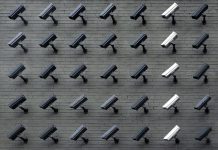At least three or four times each week over the last few weeks, I have been scrolling through my Facebook feed and have come across a New York Times op-ed entitled “It’s O.K., Liberal Parents, You Can Freak Out About Porn.” Composed by Judith Shulevitz, the article is very well-written and thoughtful, but at the same time, it completely mischaracterizes the cultural role of Internet pornography and paints the failure of liberals to address Internet pornography as a partisan issue, saying “left-leaning parents shy away from a cause they identify with right-wing culture warriors.”
While it’s true that some left-leaning individuals will refute a right-wing position solely because it’s a right-wing position, attaching that to the debate over pornography’s effects on our culture is a bit dishonest. The reason why Internet pornography hasn’t been firmly addressed by the left has more to do with a fundamental lack of evidence supporting the notion that pornography — as the 2016 Republican platform so eloquently put it — is a “public health crisis” that is destroying the lives of millions. That claim simply does not pass inspection. It cannot be empirically justified.
Neither can an article that, while not going to the extremes Republicans have gone, also promotes a “lite” version of the same idea.
Ms. Shulevitz hinges a fair amount of her article on parental anxieties surrounding the ease in which pornography can be introduced to children. She writes:
“It’s easy to spot parents suffering from pornography-based anxiety. They obsess over whether the seventh-grader supposedly writing an essay is actually watching a free gangbang video on Pornhub. They experience low self-esteem because they can’t figure out, or even find, a parental-control program that would filter out the gross stuff without restricting their children to just a few approved sites, making it essentially impossible for them to do web searches for their homework. I develop anger-management issues whenever I read an advice column telling me to keep a close watch on my child’s online activity, as if an adult could plausibly hover over a teenager long enough to ensure that he never clicks on 4chan.”
I will admit that this may be a valid concern (Christ, especially 4chan), but pointing the finger at the pornographic industry and the failures of software designed to filter out such Internet content is not how people should be examining the relationship between our culture and pornography.
It’s important for parents to have a discussion with their kids about pornography. But, unfortunately, are there far too many parents who won’t do that, whether it be that they don’t have time, they’re “hands-off” parents, they think the conversation would be too awkward or uncomfortable, or they have puritanical views on human sexuality.
Ms. Shulevitz reached out to social media scholar and youth researcher Danah Boyd, who commented about the role parents should play in their children’s eventual exposure to sexually-explicit material. She writes:
“The key to parenting children around pornography is not to start an arms race with them by trying to block their access. It’s about equipping them with the critical sensibilities to interrogate the kinds of sexualized content that is presented to them regularly.”
While Ms. Shulevitz writes that “contextualizing is a good idea,” she also states that it is not enough. She writes that Supreme Court Justice Anthony Kennedy’s view in Ashcroft v. ACLU (2004) — that available Internet filtering software was a better option for keeping children away from pornographic materials (due primarily to First Amendment concerns) than what Congress outlined in the Child Online Protection Act (1998) — was wrong. According to Ms. Shulevitz, Internet filtering software fails due to the substantial burden it places on users and, honestly, she has a point. Filtering software either doesn’t work in full, meaning that some sexually-explicit sites manage to bypass it, or the software also blocks sites that probably should not be blocked.
I’m personally all too familiar with the failures of this kind of software. Surf Monkey was trash. Thanks, Dad.
But the problems with Internet filtering software should not be considered justification for pointing the finger at, or attempting to legally cripple, the pornographic industry, as some parents and groups still wish for and Congress previously has attempted.
Is pornography getting “weirder and weirder,” as Ms. Shulevitz puts it? Sure, to some, but that greatly depends on one’s definition of “weird.” Anything that could possibly be considered weird in a sexual sense is merely a judgement of someone else’s paraphilia, or source of sexual arousal. But we all have paraphilias. For some, they are as innocuous as hair color, eye color, breast size, penis size, or fitness level. A widespread paraphilia is shaved pubic areas, which gives the subject of arousal a more youthful appearance. These things aren’t weird to most us. Similarly, for the person who enjoys watching women wearing only a diaper touch themselves while sucking their thumb, that’s their thing and it isn’t weird to them. For someone who gets off to the thought of copulating with a corpse (which Ms. Shulevitz says writer Mark Hay told her necrophilia is a trending fetish right now), that’s their thing and it isn’t weird to them.
There’s a market for almost everything. See Rule 34.
I understand that parents don’t want their adolescent kids introduced to gangbangs, sex dungeons, and vegetable masturbation before they’ve even attended their first winter social. I don’t even have kids and I know that would be my preference. But jumping on the “porn is harmful” ship, even without going as far as to call it a “public health crisis,” is not the way to approach the topic, especially when our perceptions of pornography are as poor and as rooted in moral panic as they are.
Speaking as someone who found their first nudie magazine when they were 10 and accidentally found themselves in the Internet’s boudoir for the first time at the age of 12, pornography is not this proverbial monster who ravages of the sensibilities of kids. Give them a bit more credit. While there are definitely some people who take it too seriously, a lot of kids understand that the images in pornography are about as real-life applicable as professional wrestling.
Featured image by Larry Knowles, available under a Creative Commons Attribution 2.0 Generic license.





